Student Government In Name Only
Tattler Investigation Reveals: No Elections, No Representation
April 4, 2023
Representative student government is non-existent at Santa Fe High, a Demon Tattler investigation has revealed.
Officials of the current student government leadership were not elected. The names of the president, vice president, secretary, activities secretary, and treasurer were literally “picked out of a hat,” according to Christina Sanchez, a senior who serves as student government secretary. The drawing took place in the fall of 2019, which means that three-fourths of today’s school population hadn’t even entered high school yet. “It’s just been that way ever since,” said Christina.
According to a school-wide survey conducted by The Demon Tattler in March, 372 students out of 432 respondents (86 percent) were either “completely unaware” or only “somewhat aware” that student government existed.
During a three-year stretch that has seen three principals, the controversial implementation of standard-based grading, and the challenges of remote learning imposed by the pandemic, Santa Fe High’s student government has functioned strictly as an activities committee without broader student body input.
Multiple interviews with student participants and administrators indicate that the core problem lies in confusion surrounding the responsibilities of student government. The SFHS organization lacks a charter, which would clearly define the rights, privileges, powers, and functions of the student government and those it represents. No one involved in the past decade knows if such a charter has ever existed.
Further complications lie in the blurred distinction between the student government class and the student government club. Neither the student government president, senior Valeria Ramirez, nor the vice president, Sophia Hernandez (who had their names drawn from the hat their freshmen years) are enrolled in the third period student government class taught by Mr. Brownlee.
Junior Audrey Esparza, who participates in both the class and the club, sees their lack of participation as a handicap to productivity because junior class members lack authority in the club. “It could have been beneficial if the seniors did take the class and were here on the daily, but they’re not,” she said.
Mr. Brownlee, who volunteered for the position of student government class sponsor/teacher last year, has noticed a devastating division between the class and the club and believes that members of the club should be required to take the class. “If not, why do we even have a class?” he said.
Mr. Brownlee says he sought clarification from then-principal Renee Salazar-Garcia, who originally appointed him before resigning earlier in the school year, about which administrator has ultimate responsibility and authority for student government. “I did talk to Principal Garcia,” he said. “I’m like, ‘Hey, I’m not Gina’s boss, but who’s in charge of student government?’”
Student government club advisor and school activities coordinator Gina Branch said, “I have no idea what Mr. Brownlee does.”
The lack of communication and clarity about lines of authority flared during a student government meeting in September when Mr. Brownlee proposed a relocation of the prom in order to lower admission fees.
Mr. Brownlee recalls being interrupted at the meeting and having his ideas pushed aside by Karen Hare, Ms. Branch’s predecessor, who had left SFHS before the school year began. “Karen is mysteriously there, and cuts me off in the middle of saying [the prom proposal],” Mr. Brownlee recalls, “so I literally grabbed my lunch and went next door.”
This incident marked the first instance of failure of assimilation between the club and the class.
Ms. Hare, who acted as club sponsor of student government from 2015 until 2022, recalls this event as less extreme: “I just kind of chimed in,” she said. Ms. Hare claims she was invited to attend and offer advice during the student government meetings by former principal Ms. Salazar-Garcia, but decided to stop attending, once she received word that Mr. Brownlee had been offended.
Many members of student government, and Mr. Brownlee, agree that an election for student officers is long overdue. “We tried to change it this year,” Christina Sanchez said, “but it just never happened.”
Mr. Pederson, a world history and economics teacher, has had approximately 15 years of experience advising functional student government organizations at Santa Fe, Pojoaque, and Capital high schools. When he taught the class at SFHS for two years, Mr. Pederson says he prioritized the integrity of the electoral process and simulated a representative democracy that acted as a service to the school rather than an authority.
“It doesn’t matter where you go, you’re going to be involved in the parliamentary procedure at some point,” Mr. Pederson said. “It’s important that kids see what that’s like now.”
Mr. Pederson also recalls directing students to take the lead and organize elections themselves. “Holding elections taught kids how to vote and put people in the habit of it,” he said.
Mr. Pederson would like to see the return of “actual elections, service projects, and fundraising efforts,” from student government. However, he explicitly stated that he would not resume a position of leadership within the school’s student government.
Mr. Pederson currently holds a role in SFHS’s Student Youth and Government Club (although Ms. Karasic is the club advisor), a program run by the Central New Mexico YMCA that focuses on the details of mock legislature, and participates in a statewide conference in April.
Mr. Brownlee indicated to The Demon Tattler that he will be leaving the position following the end of this school year.
This development could leave Ms. Branch and the administration a decision to make about a possible replacement of a class sponsor, or abandonment of the class altogether.
Ms. Branch and junior members who are looking to participate in student government next year say they are motivated to re-establish the program, write a charter, and hold elections for the five positions of greatest responsibility.
“If [students] have a concern or would like to bring something up, I would like them to attend a meeting,” Ms. Branch said.
The club members meet Wednesdays at lunch in Ms. Bernadette’s office, which is located in the Student Services building. Ms. Branch encourages students to participate in these meetings as they are not exclusive to club members.
“My approach is that every student has a voice,” Ms. Branch said. “This is their school, this is your school.”
Data gathered in The Demon Tattler survey:
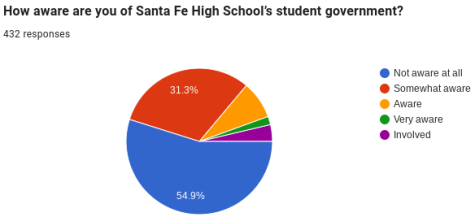
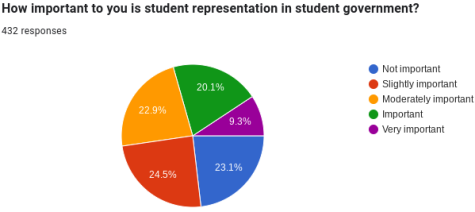
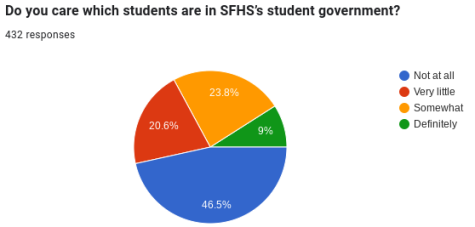
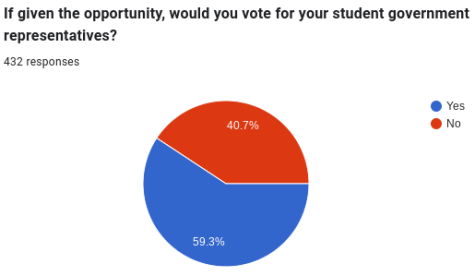


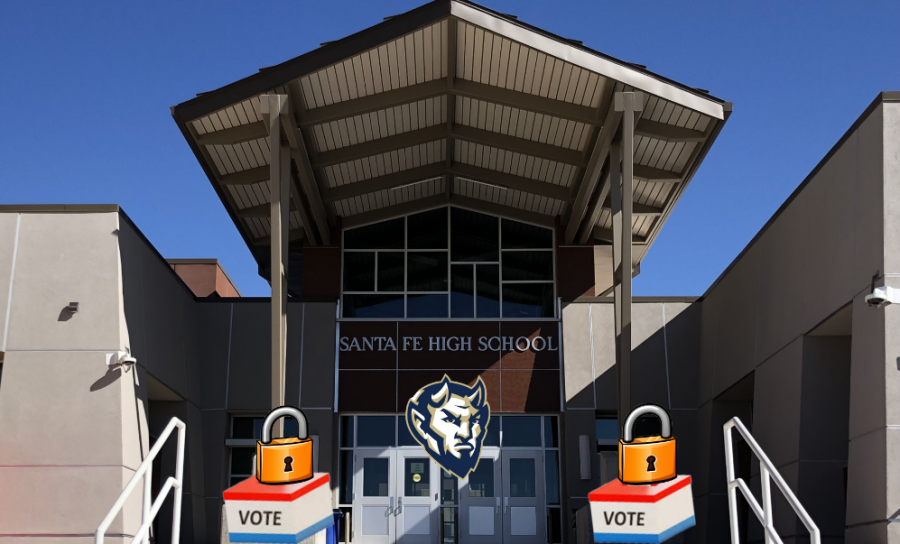
Gina Branch • Aug 31, 2023 at 10:58 am
Aww, Thank you for this information. From discussions with Karen Hare, students were not “Name pulled out of a hat”! We are in the process of revamping student government. However, If Mr. Brownlee felt so strongly about not being heard then he probably should have stayed and had a discussion with Ms. Hare and I after the meeting to resolve any issues. Instead he chose to be not present for the remainder of the year.
Student government is striving to revamp the program and bring back school spirit and fun in positive way. Fundraisers and events are coming soon. Any students wishing to participate are always welcome. This years meetings (2023-2024) will take place every wednesday during the lunch hour in the community room located in the library.